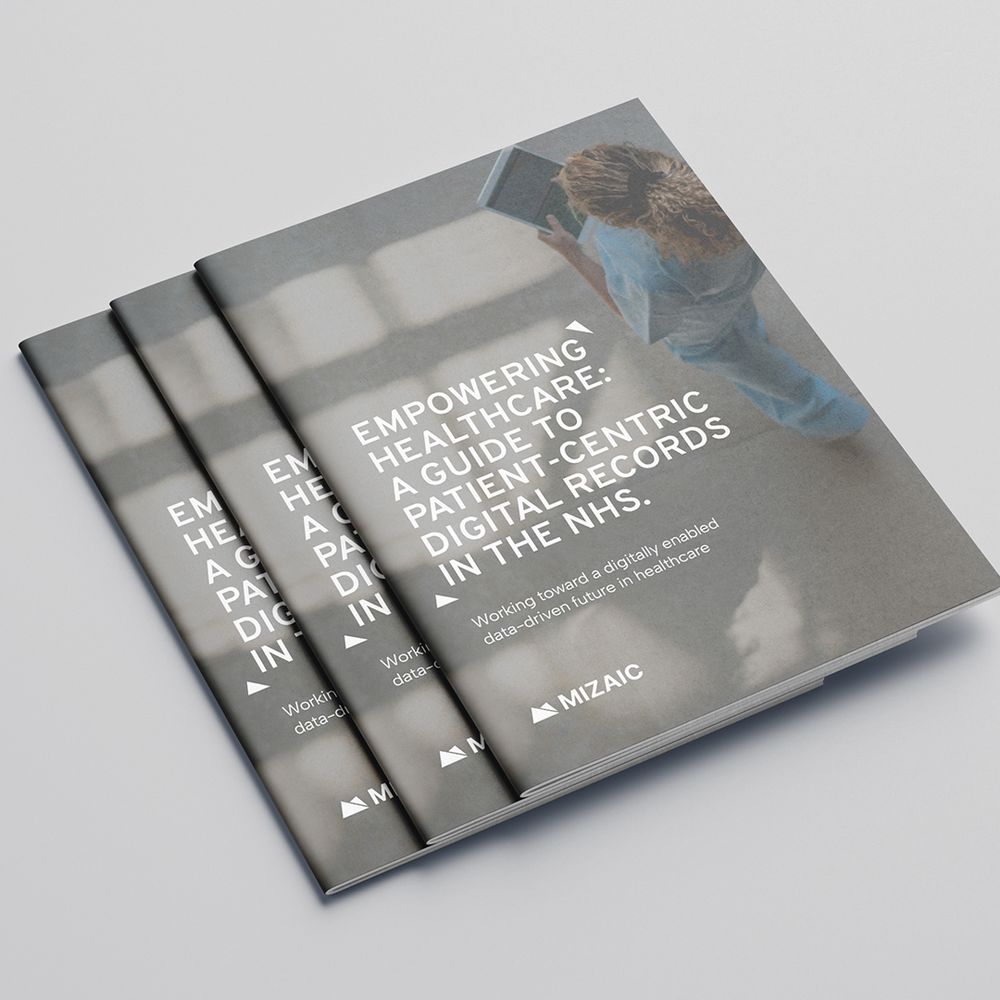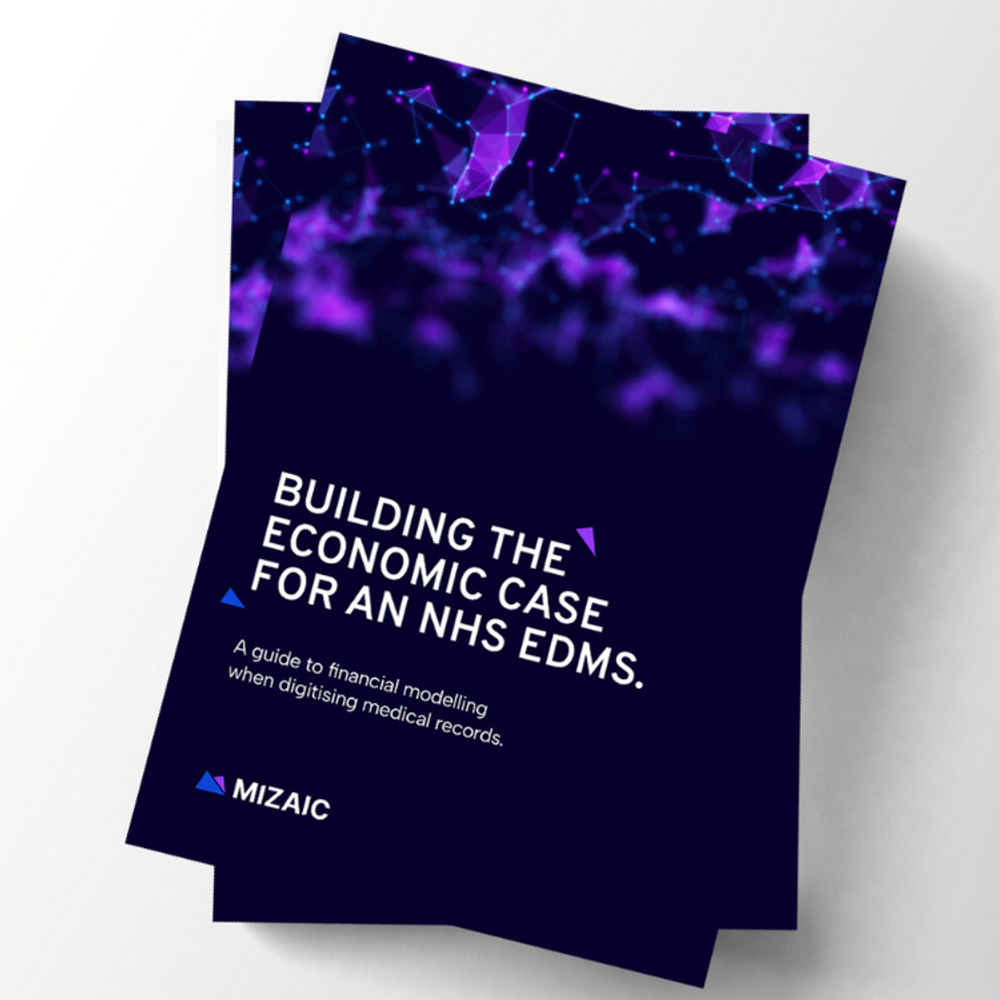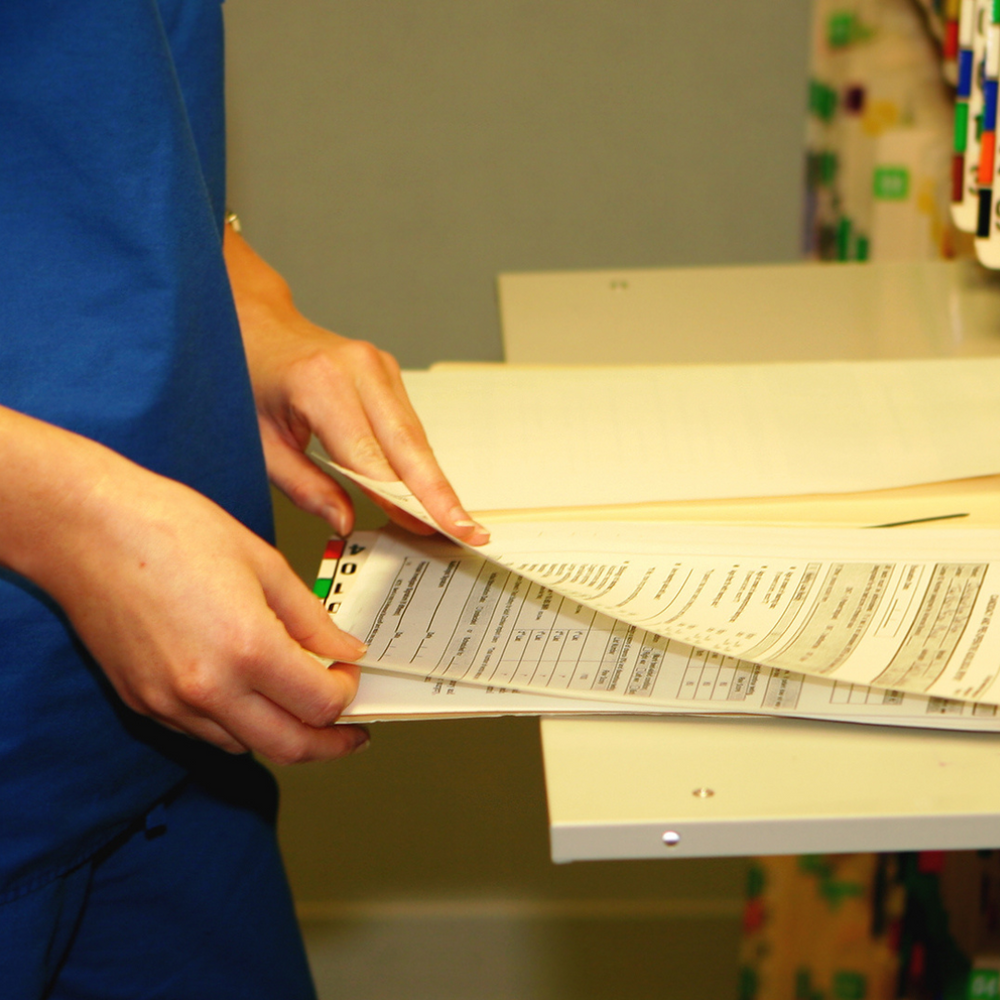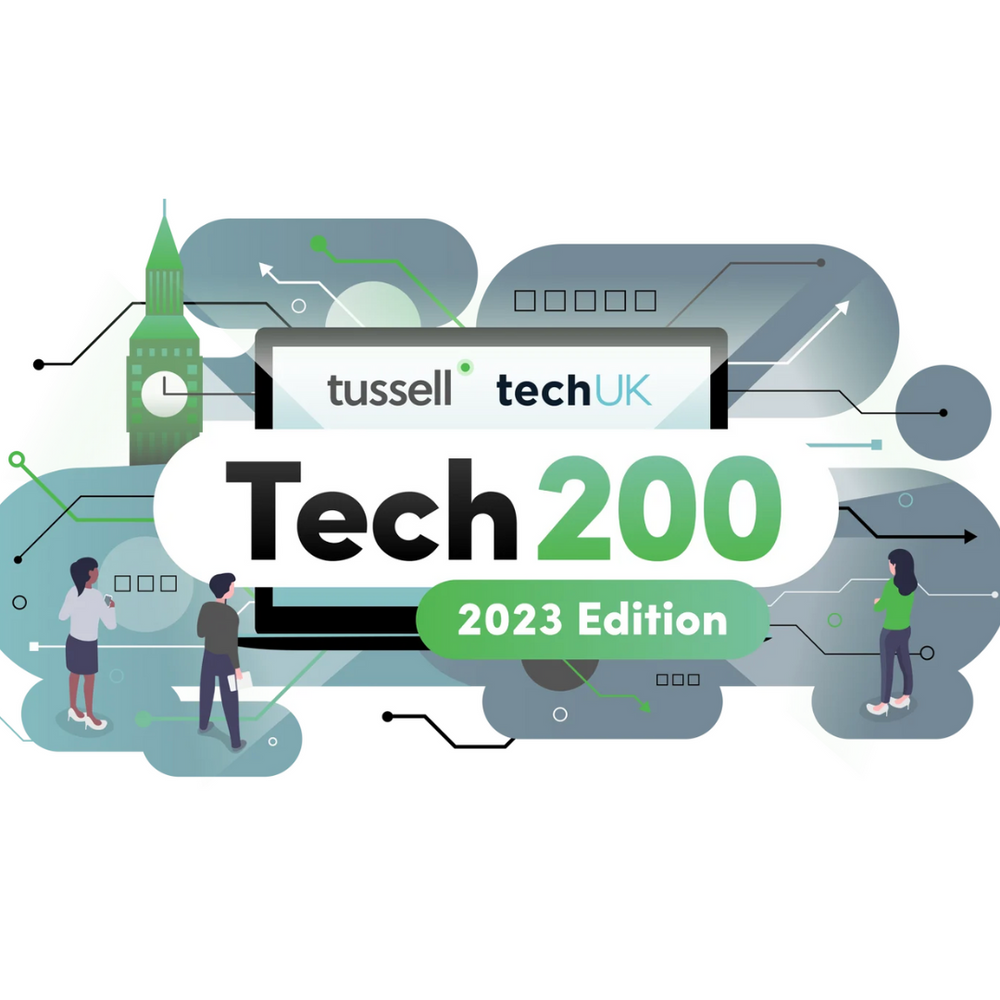
With a truly global reach, Open Access Government is a trusted digital publication with a well-known ‘voice’ when it comes to key public policy matters, particularly those influencing the international health and social care landscape. When the editorial team began planning for their quarterly digital transformation feature, they turned to Mizaic for input. If you missed the resulting write up, you can read it in full here…
As the CEO of Mizaic – a renowned provider of Electronic Document Management Solutions (EDMS) for the NHS – Jon Pickering brings a wealth of experience and expertise, steering the company's efforts in the digital transformation of historical paper medical records. In this article, we delve into Jon’s insights as he addresses the critical need for digitising patient data, the challenges posed by funding constraints in an economically strained climate, and the pivotal role of EDMS solutions in laying the foundation for the NHS's evolutionary digital journey. He highlights the transformative power of data, as it will not only better empower the UK’s Integrated Care Systems (ICS) strategy, but will also set the stage for unlocking the power of artificial intelligence – both hot topics in the industry right now.
In an era of rapid technological advancement, the National Health Service (NHS) is standing on the edge of a monumental shift towards digital transformation. As the world around us continues to evolve, so too must our approach to healthcare. The NHS has long been the backbone of the UK’s healthcare system, offering unparalleled medical care to millions of individuals every year. However, it is now faced with the pressing need to harness the power of technology to unlock new levels of efficiency, collaboration, and patient care.
It's evident that the integration of technology into every aspect of our lives has become an inevitable inevitability. Industries across the spectrum have been embracing digital transformation to drive innovation, streamline processes, and elevate customer experiences. The healthcare sector – including the NHS – is no exception. The concept of digital transformation isn't just about adopting technology for the sake of it; it's about leveraging the tools available to us to propel our industries forward, deliver more effective services, and ensure the enhanced wellbeing of individuals.
Underfunding our future
However, the path to digital transformation is not without its challenges, especially when it comes to the NHS. One of the most pressing obstacles is funding. The NHS is currently operating in an economy that is cash-constrained, making it increasingly difficult to secure the resources necessary for implementing cutting-edge technology. Like many other NHS-focused tech companies, we are still waiting for the government to align funding to the ambitious digitisation objectives they have set for every hospital in the country. But due to the current economic climate, will it ever materialise?
The recent levelling-up funding was a force for good, helping some Trusts onto the first rungs of the digital maturity ladder, but much more support is needed. The timeline for achieving the digitisation goals keeps moving to the right as progress stalls, and the picture is unlikely to change drastically, anytime soon, unless there is a fundamental shift in thinking at a ministerial level. While there is a strong economic case for investing in technology for healthcare, the reality is that the government needs to be judicious in its allocation of funds. This calls for a strategic approach that ensures investments are made where they will have the most significant impact.
Jumping ahead
One technology that sparks particular excitement in healthcare – and almost every other industry in fact – is the integration of Artificial Intelligence (AI). Envisioned as a catalyst for revolutionising patient care, AI holds the promise of analysing vast troves of healthcare data with unmatched speed and precision. From assisting in diagnostics by drawing upon a patient’s medical history, to predicting disease outbreaks, the possibilities seem limitless.
While AI's potential is undeniable, it's important to recognise that this promising future hinges on a foundational step that cannot be skipped — the digitisation of existing paper-based medical records. Without quality data at its core, AI's wings are clipped, and the full scope of its capabilities remains tethered. As we embark on the journey towards AI-driven healthcare, let's not overlook the crucial first steps that pave the way for this transformative evolution.
Connected care
Another crucial conversation centres around the implementation of Integrated Care Systems (ICS). These systems hold the promise of seamlessly sharing patient data across different care settings within a region. While the vision for ICS garners widespread support, the road to realisation is paved with challenges. One of the hurdles lies in the convergence of Electronic Patient Record (EPR) systems. Given the lack of consistency among EPR vendors across regions and the diverse requirements of varying care settings, achieving this convergence is no simple feat. Budget constraints further complicate the matter.
But again, whilst this conversation continues, a fundamental aspect often goes unnoticed — the need to transition data from vast storage libraries to intuitive and interoperable digital content management systems. The true potential of ICS – like AI – can only be realised when accurate and accessible data becomes the bedrock of the system.
The digitisation of patient data sets the stage for seamless interoperability between different Trusts, enabling clinicians to access critical patient information at the point of care, precisely when they need it. Nevertheless, the full potential of leveraging this invaluable data is hampered by the current lack of robust interoperability within these systems. Consequently, it is imperative that these tools possess the capability to seamlessly interoperate, dismantling barriers that confine data within isolated silos.
The first step to a digital NHS
This is where we believe that EDMS plays a vital role in being the intelligent content store for patient data. With EDMS, the benefits of digitised data are far-reaching. It provides clinicians with rapid access to patient information, enabling more informed decision-making and improving the overall quality of care. Moreover, it nurtures an ecosystem of interconnected data that acts as a catalyst for innovation and further advancements in healthcare. Data, when combined with context, transforms into actionable information, empowering medical professionals to make precise diagnoses more quickly and tailored treatment plans.
Looking forward, the vision for the NHS involves federating access to patient data across multiple hospitals within a region. Currently, the cumbersome process of requesting information from other hospitals hampers effective collaboration. The digitised ecosystem facilitated by EDMS solutions will pave the way for a streamlined exchange of information, ultimately benefiting patients and medical practitioners alike.
While the journey towards digital enablement is promising, the focus must remain on the user experience, particularly for clinicians. As technology providers, we have a responsibility to ensure that the tools we create enhance rather than hinder their workflows. This means investing in user-centred design and addressing the practical challenges clinicians face daily. The ultimate goal is to make accessing patient records intuitive and efficient, ensuring that clinicians spend more time engaging with patients and less time navigating through digital systems.
The NHS's pursuit of digital transformation is an ambitious yet necessary endeavour. As the healthcare landscape continues to evolve, so must our approach to delivering quality medical care. The challenges posed by funding constraints and the complexities of technology integration should not deter us from the path of progress.
EDMS solutions stand as a cornerstone of this transformation, offering a bridge from the era of paper records to a future of data-driven insights and interoperability. By embracing these changes, we are not only future-proofing the NHS but also ensuring that it remains a beacon of healthcare excellence for generations to come.
If you’d like to learn more about how EDMS can revolutionise the clinician : patient experience, get in touch.
Related posts

guide
Empowering healthcare: A guide to patient-centric digital records in the NHS

guide
Building the economic case for an NHS EDMS guide

case study
Helping Northumbria Healthcare NHS Foundation Trust digitise 1m+ patient records

case study
Barnsley Hospital achieves digital excellence with partners Mizaic, System C and Iron Mountain

case study
Hillingdon Hospitals NHS Foundation Trust transforms healthcare infrastructure

case study
Helping Northampton General Hospital NHS Trust digitise 200,000+ medical records

case study
London North West University Healthcare NHS Trust celebrates 170,000+ digitsed records

event
HPN South 2024

event
The digital and data enabled health system - what does it look like?

